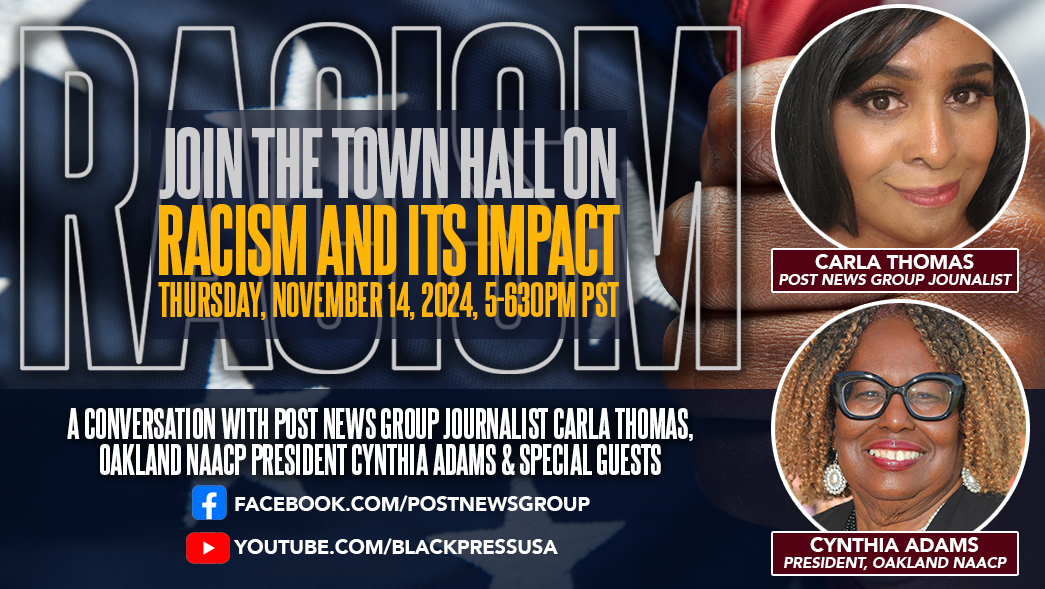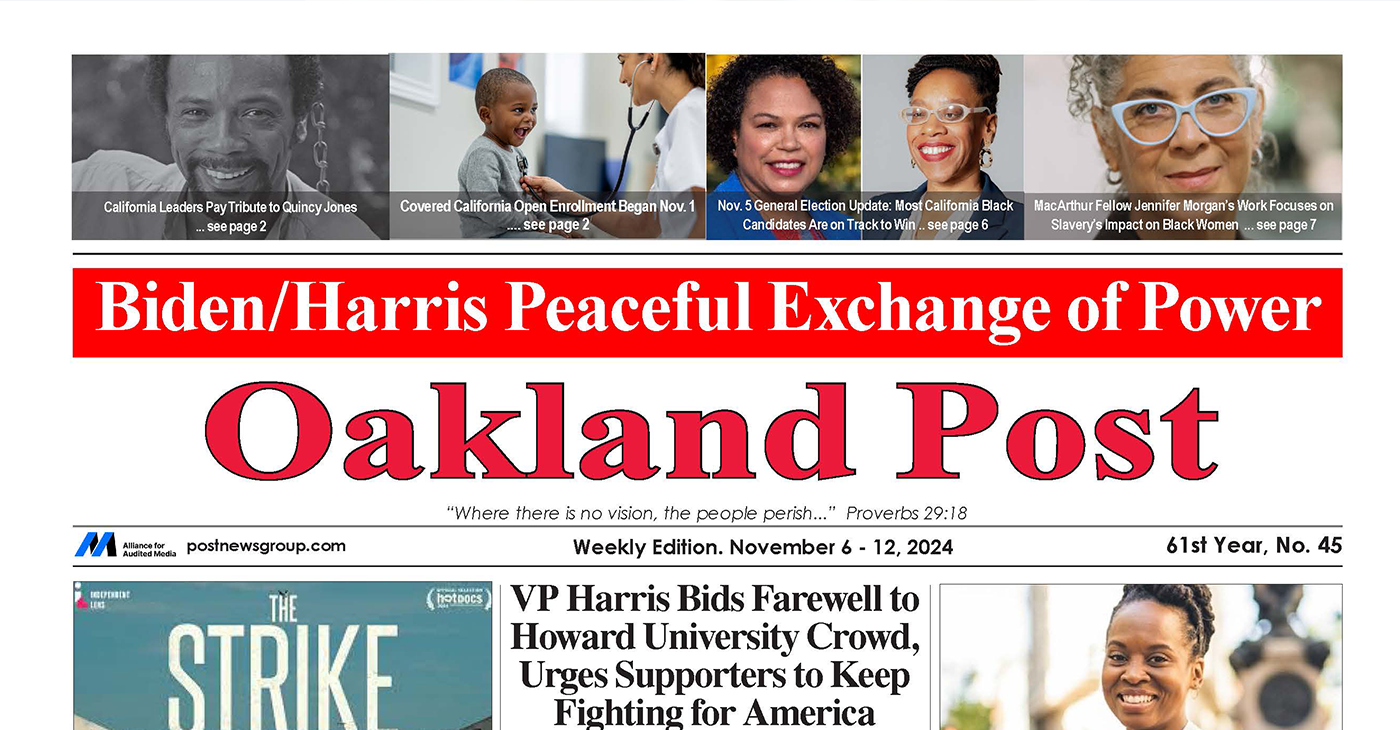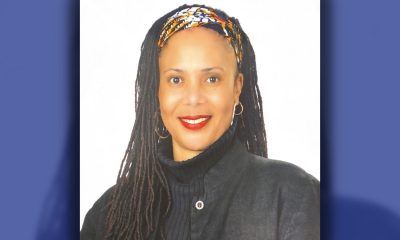Entertainment
The N*gga Project Experience
by Kimetha Hill
Special to the NNPA from the San Diego Voice & Viewpoint
Nigger. A very abrasive word. A very volatile word. A very powerful word. A word that has caused generations of damage to an entire culture of people. The word comes from very dark roots, but has somehow “conformed” to the liking of many, many black folks. Now a “term of endearment” the word, “nigga” is thrown around like “hello” among circles of young people. Mulemvo Nianda, documentary filmmaker and sociology student, grew frustrated with the use of the word especially among the younger generations and developed a short documentary on the word.
“The motivation behind it was all the negativity I saw going on with the N-word,” said Nianda. He describes how the word is littered among popular rap songs of stars including Nicki Minaj and other artists who choose to utilize limited vocabulary in their expressions. “All of these songs are coming out and nobody was really saying anything or giving an alternative to it. So I felt that I should take it upon myself to put out an alternative for the young people to look at,” he added.
Inspired by his Black Studies class, Nianda set out to interview people at random in a “man on the street” type setting to capture reactions to the word “nigga” on camera. Thus, The Nigga Project Experience was birthed.
“I put out The Nigga Project by going around the city and asking different people how they felt about the word. And then it formulated into the first documentary, The Nigga Project Part I. The demand was high for it so I did Part II.”
The Nigga Project is an extension of a research project on which Nianda worked during his studies. Diving into the community and asking questions was something that came naturally to him. In Part I, Nianda felt it best to randomly select people for responses to the word. Some were classmates, some were old, very few were young, but his selection was random.
“I tried to target young men, but a lot of the younger men didn’t want to get on camera. The older generation was more willing to be on camera and talk about it and how they felt. In Part I, I only have one or two young people in it because they didn’t want that face time.” And though they may have still chosen to discuss their feelings with Nianda, they opted not to be interviewed on camera.
The reactions to the word were interesting, and Nianda points to the emotion the word provoked in many who were interviewed.
“The majority of the responses were not necessarily positive. But with the young people, I found that they were more accepting of it,” says Nianda as he cites the uses that can be heard in younger generation circles. “That’s my nigga, that’s my homie, that’s my brother.” But he says, “With the older generation, 35 and up, it’s more so like a negative word, a term that we shouldn’t be using. A lot of them want to eradicate the word, but they don’t really know how to.”
As the project grew, the generation divide was made clear to Nianda. The word provokes emotions, emotions of pain and hurt for older generations, emotions that seem to be lacking among the consciousness of youth. But Nianda felt instead of condemning the youth, education on the word must happen.
“A lot of them [youth] don’t know the history behind the word, and when they do know it’s still kind of like ‘That doesn’t have anything to do with me. That was then.’ They don’t really have an emotional connection to the word. And that was another goal of The Nigga Project – to emotionally connect the youth to the origin behind the word – the real intent behind the word. A lot of them don’t know that it’s negative. And if they do know it’s negative, they don’t really care that it’s negative. So if I could emotionally connect them to the original intent behind it, I felt that would give them a standpoint to go from.”
Nianda’s documentary has been shown at several venues around San Diego, as his aim is to spark as much discussion about the word as possible. He took his film everywhere including restaurants, beauty salons, the Urban League and the Jacobs Center.
“We try to go to different spots and have discussions afterwards. And it’s a mixed crowd, it’s not just blacks that come. I feel like everybody can chime in on the topic regardless of race, whether you agree with the word or not. I feel like everybody should have a voice. And that’s what happens at the discussions. We just give people the opportunity to share how they feel about the word,” says Nianda. “Maybe somebody in the room can be educated on a different perspective.” It is through these discussions that Nianda hopes to bridge the generation gap and enlighten the masses.
“I just want to give a voice to the younger generation. I feel like a lot of them do have a voice, but they don’t feel like the older generation is going to hear them. The older generation is focused in other things that they kind of lag behind in teaching us on how to carry ourselves, or how to be or do certain things.”
In Part III, Nianda says he will specifically target young black men since the word is used so heavily in those circles. He plans to hold a youth summit at the Malcolm X Library in July where his documentary will be shown.
What began as an extension of a research project on YouTube has grown to reach a large audience. “I’m just happy to see the people and educate our community,” he says.
Activism
Oakland Post: Week of November 13 – 19, 2024
The printed Weekly Edition of the Oakland Post: Week of November 13 – 19, 2024

To enlarge your view of this issue, use the slider, magnifying glass icon or full page icon in the lower right corner of the browser window. ![]()
Activism
LIVE! — TOWN HALL ON RACISM AND ITS IMPACT — THURS. 11.14.24 5PM PST
Join us for a LIVE Virtual Town Hall on the Impact of Racism hosted by Post News Group Journalist Carla Thomas and featuring Oakland, CA NAACP President Cynthia Adams & other Special Guests.
Thursday, November 14, 2024, 5 p.m. – 6:30 p.m. PST

Join us for a LIVE Virtual Town Hall on the Impact of Racism hosted by Post News Group Journalist Carla Thomas and featuring Oakland, CA NAACP President Cynthia Adams & other Special Guests.
Thursday, November 14, 2024
5 p.m. – 6:30 p.m. PST
Discussion Topics:
• Since the pandemic, what battles have the NAACP fought nationally, and how have they impacted us locally?
• What trends are you seeing concerning Racism? Is it more covert or overt?
• What are the top 5 issues resulting from racism in our communities?
• How do racial and other types of discrimination impact local communities?
• What are the most effective ways our community can combat racism and hate?
Your questions and comments will be shared LIVE with the moderators and viewers during the broadcast.
STREAMED LIVE!
FACEBOOK: facebook.com/PostNewsGroup
YOUTUBE: youtube.com/blackpressusatv
X: twitter.com/blackpressusa
Activism
Oakland Post: Week of November 6 – 12, 2024
The printed Weekly Edition of the Oakland Post: Week of November 6 – 12, 2024

To enlarge your view of this issue, use the slider, magnifying glass icon or full page icon in the lower right corner of the browser window. ![]()
-

 Alameda County4 weeks ago
Alameda County4 weeks agoAlameda County District Attorney Pamela Price Announces $7.5 Million Settlement Agreement with Walmart
-

 Activism3 weeks ago
Activism3 weeks ago‘Jim Crow Was and Remains Real in Alameda County (and) It Is What We Are Challenging and Trying to Fix Every Day,’ Says D.A. Pamela Price
-

 Bay Area3 weeks ago
Bay Area3 weeks agoIn the City Attorney Race, Ryan Richardson Is Better for Oakland
-

 Activism3 weeks ago
Activism3 weeks agoOakland Post: Week of October 30 – November 5, 2024
-

 Alameda County3 weeks ago
Alameda County3 weeks agoD.A. Price Charges Coliseum Flea Market Vendors in Organized Retail Theft Case
-

 Activism3 weeks ago
Activism3 weeks ago‘Criminal Justice Reform Is the Signature Civil Rights Issue of Our Time,’ says D.A. Pamela Price
-

 Activism3 weeks ago
Activism3 weeks ago“Two things can be true at once.” An Afro-Latina Voter Weighs in on Identity and Politics
-

 Arts and Culture3 weeks ago
Arts and Culture3 weeks agoMacArthur Fellow Jericho Brown’s Poetry Reflects Contemporary Culture and Identity






















































